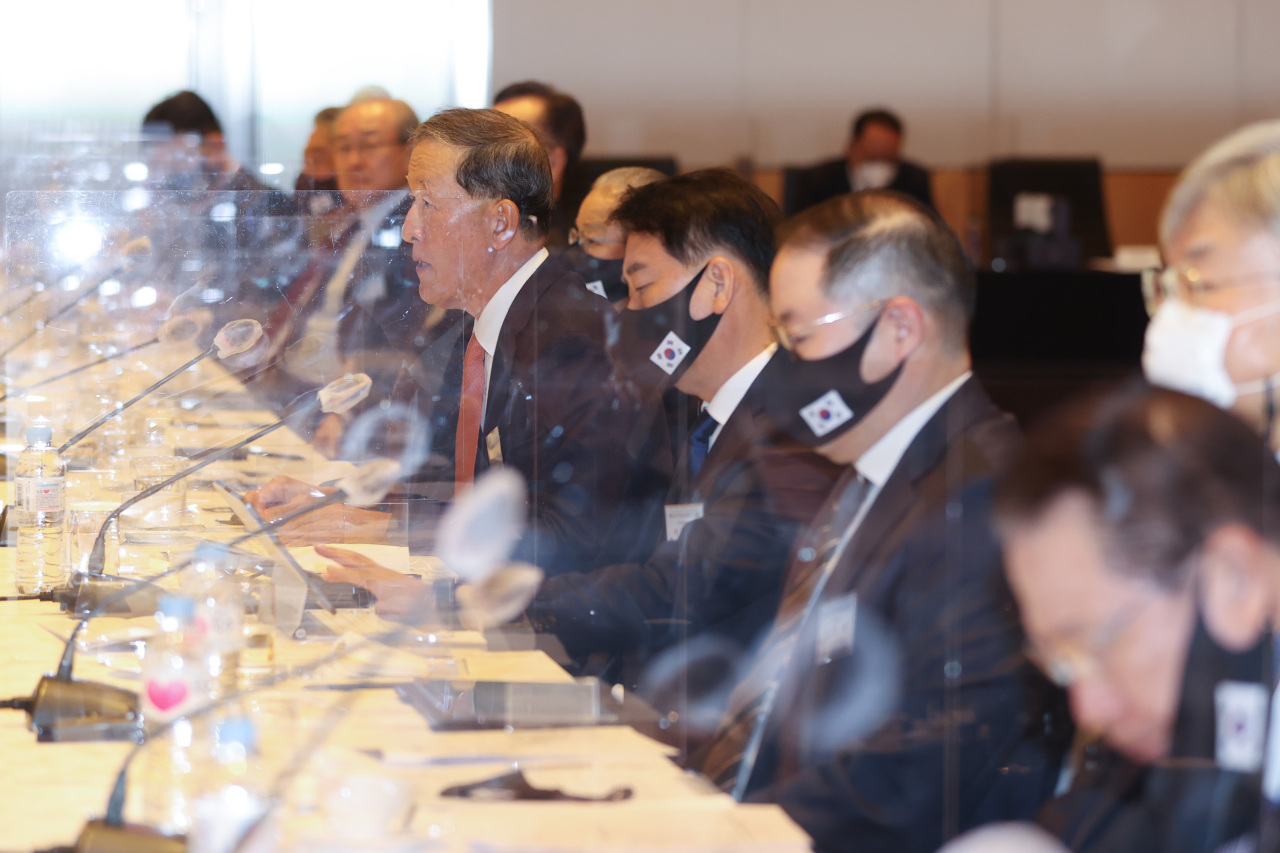 |
Huh Chang-soo, the chairman of the FKI, speaks during Tuesday's meeting. (Yonhap) |
Business leaders in South Korea and the US have called for the protection of confidential business information and urged to ensure the autonomy of the private sector as the post-COVID global supply chain is being realigned.
During the 33rd Plenary Meeting of Korea-US & US-KOREA Business Councils on Tuesday, an event jointly held by the Federation of Korean Industries and the US Chamber of Commerce, issues such as bilateral relations, climate change and building a resilient global supply chain were discussed.
Participants include Lee Kwang-jae, the Chair of the Foreign Affairs and Unification Committee, South Korean ambassador to the United States Lee Soo-hyuck, Under Secretary for Economic Growth, Energy, and the Environment Jose Fernandez as well as officials from companies including Korean Air, Lotte, SK, Boeing and Amazon who spoke to each other in a video call.
In an opening speech, Huh Chang-soo, the current chairman of the FKI, called for “trilateral cooperation between South Korea, the US and Japan” to restore the global economic order disrupted by the pandemic.
Signing a joint statement, participants in both countries agreed that cooperation between countries with shared values is necessary in key strategic fields such as semiconductors and electric vehicle batteries, the Seoul-based federation said.
In a joint statement, the councils urged to “promote coordination among allies and refrain from requesting sensitive business confidential trade information from like-minded countries” as part of efforts to build a resilient and trusted supply chain.
The remark comes amid reports that South Korean chipmakers Samsung Electronics and SK hynix have submitted semiconductor data to the US, excluding key trade secrets.
The group of business leaders also said business incentives should be provided to “diversify the supply chain and foster investment and R&D providing flexibility for companies in like-minded.”
In strengthening the Korea-US economic relationship to accelerate post-COVID-19 recovery, the group also called on the governments to remove “trade-restrictive measures that are contrary to the letter and spirit US-Korea Free Trade Agreement (KORUS)” including the “use of imports restrictions based on Section 232 of the US Trade Expansion Act, as well as the Korean government’s restrictions on cloud services and regulation of pharmaceuticals and medical devices.”
When it comes to achieving carbon neutrality, the councils said climate goals and policies should be set through an “open and consultative process with industry” to ensure that they are achievable and do not harm the US and Korea’s long-term economic growth, energy security, and global competitiveness.
The next KUSBC- USKBC Joint Plenary Meeting is scheduled to be held in the fall of 2022 in Seoul.
By Yim Hyun-su (
hyunsu@heraldcorp.com)








